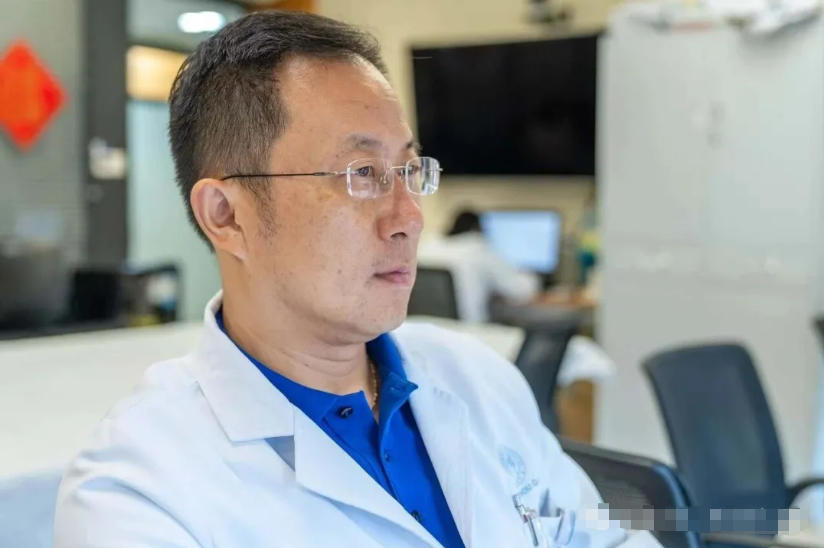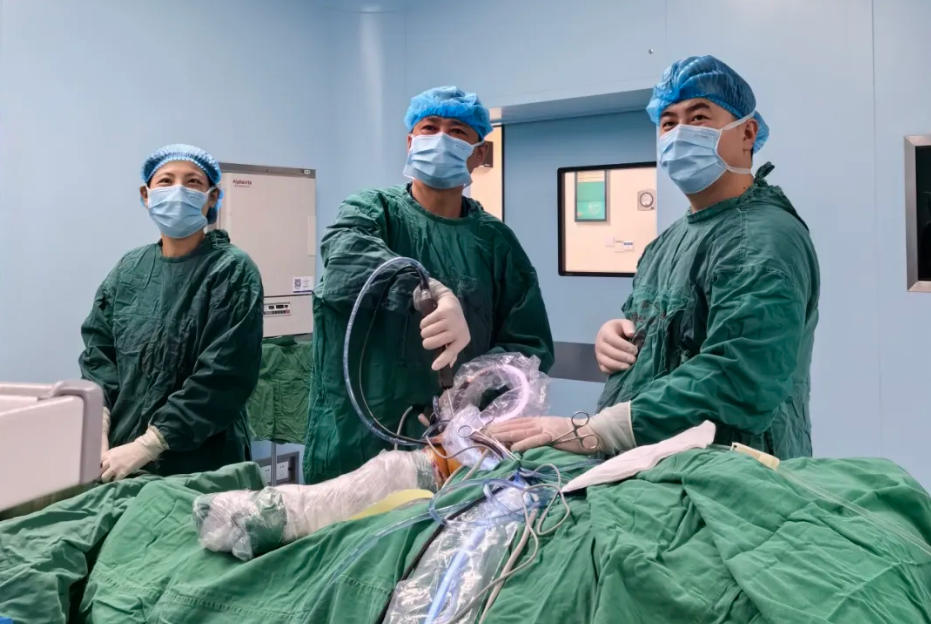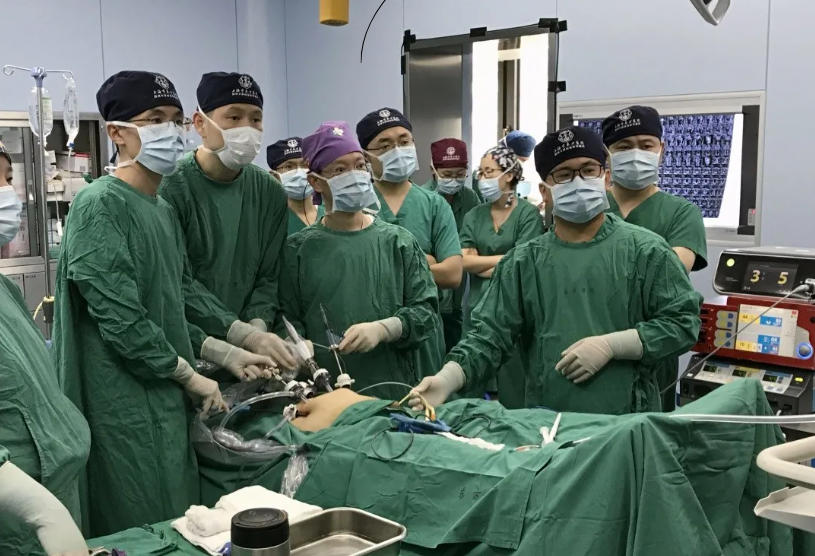Update time:2025-10-19Visits:3393

Dong Chen, Immunology Academician of the Chinese Academy of Sciences, Director of the Shanghai Institute of Immunotherapy Innovation
Introduction
Exploration is driven by new perspectives and a persistent pursuit of goals.
As an Academician of the Chinese Academy of Sciences, Chen Dong is a leading figure in contemporary immunology. Mentored by the founders of modern immunology, he has achieved remarkable results through diligence and innovation.
He is an authority on Th17 and Tfh cells and one of the most cited Chinese immunologists.
He believes the courage to discover and ask questions is the essence of scientific inquiry and the seed of innovation. Fixed concepts and vague assumptions can create mental ruts, but true exploration begins when systematic verification reveals surprises, leading to new questions.
He is convinced that the future of medicine lies with “physician-scientists,” and that integrating clinical practice with basic research will accelerate medical progress.
The Origins of a Scientific Mind
Wuhan, a city where history and modernity converge, is where Chen Dong spent his childhood, growing up alongside the mighty Yangtze River and the city’s iconic landscapes.
“From 1985 to 1989, I studied cell biology at Wuhan University and obtained my bachelor’s degree,” he recalls.
But his thirst for knowledge was insatiable. In 1990, he traveled to the United States to pursue a doctorate in cellular and molecular biology at the University of Alabama at Birmingham, graduating in 1996. This was just the beginning of his journey into medical science.
Over the next three years, he conducted postdoctoral research at the Yale University School of Medicine’s Department of Immunology. The new millennium marked a turning point: he became an Assistant Professor at the University of Washington, establishing his own research team. In 2004, he joined the University of Texas MD Anderson Cancer Center as a tenured Associate Professor, exploring the link between the immune system and cancer. By 2008, he was appointed a tenured Professor, cementing his reputation as a rising star in immunology.

Mentor and Protégé: An Immunological Legacy
Chen Dong’s academic impact is immense; his Google Scholar h-index exceeds 100, with over 50,000 citations. This success is due in large part to his mentor, Max D. Cooper.
One of Chen’s landmark achievements is his research on Th17 cells, which established him as a founder and leading authority in the field. Th17 cells, a subset of T cells, are linked to various autoimmune diseases. In 2005, Chen and his collaborator Casey Weaver published their discovery in Nature Immunology, shattering the long-held belief that helper T cells consisted only of Th1 and Th2 types. They identified a third, distinct lineage that developed from naive T cells and secreted Interleukin-17 (IL-17). Chen’s team further demonstrated the critical role of IL-17 in causing tissue inflammation and identified the key transcription factors, RORA and ROEC, that regulate these cells. This research paved the way for new therapies targeting Th17-related molecules, which have proven successful in clinical trials for psoriasis, psoriatic arthritis, and ankylosing spondylitis.
Another major research focus for Chen is T follicular helper (Tfh) cells. His lab discovered the unique characteristics of Tfh cells and revealed their development and function. He identified the specific gene expression profile required for their differentiation and discovered that the transcription factor Bcl6 is crucial for their development. His team also found another factor, Tox2, which forms a positive feedback loop with Bcl6 to further promote Tfh cell function. These foundational discoveries were recognized as one of the 20 landmark achievements in immunology.
Chen emphasizes the profound real-world impact of basic research. “Our findings are directly linked to disease,” he notes. Drugs developed to target Th17 cells, based on his work, have been approved for treating various immune diseases. One drug for psoriasis has a cure rate exceeding 95%, and this class of therapies generates over $10 billion in annual sales globally. This demonstrates how fundamental scientific exploration can lead to powerful, life-changing medical treatments.
A Passionate Heart, Deep Love for Country
In 2012, Dong Chen gave up the opportunity to continue his development in the advanced research environment of the United States and returned to his homeland to serve as a professor at the School of Medicine, Tsinghua University. Starting in 2013, Dong Chen served as the Vice Dean of the School of Medicine at Tsinghua University and founded the Institute for Immunology at Tsinghua University School of Medicine in 2014.
When he first returned to China, Dong Chen realized that there was still a gap between China’s immunology and the international level, but the development of immunology was in a great era, with major breakthroughs occurring every few years, bringing new ideas and methods to clinical problems. This trend would promote the rapid development of immunology in China. Immunology would also enable more Chinese patients to receive better treatment.
After several years of effort, he led a team of medical talents to overcome many challenges in immunology research. These studies covered various aspects of immunology, including allergies, autoimmunity, and tumor immunity. Dong Chen clearly recognized that although significant progress had been made in immunology research in recent years, more efforts were needed. He believed that cultivating more young immunology talents was necessary to achieve more original results and elevate China’s immunology to a new level.
During his time at Tsinghua, Dong Chen published a series of important papers, achieving remarkable results. He deepened the understanding of the mechanisms of immune diseases, provided new strategies for disease treatment, and promoted the research, development, and application of new immunological drugs, making significant contributions to the development of immunology.
It was due to Dong Chen’s outstanding performance in China that he was elected as an Academician of the Chinese Academy of Sciences in 2019.
South to Shanghai, Embracing Renji
In August 2020, Dong Chen went south to Shanghai, officially joining Renji Hospital, Shanghai Jiao Tong University School of Medicine. At the employment signing ceremony, Dong Chen expressed his hope to contribute his abilities on Shanghai’s medical frontier innovation research platform and promote innovative work. He would focus his work on strengthening the combination of basic research and clinical needs, accelerating the transformation of medical research results, and making important contributions to the development of medicine and the treatment of difficult diseases.
“Renji Hospital is the earliest hospital after the opening of Shanghai. I am honored to join Renji Hospital. Through my efforts, I hope to enable more researchers to participate in clinical work and also encourage more doctors to engage in scientific research.”
Soon after, the Shanghai Institute of Immune Therapy Innovation was established at Renji Hospital, Shanghai Jiao Tong University School of Medicine, with the support of the Shanghai Municipal Government. The institute is jointly built by the Shanghai Municipal Government and Shanghai Jiao Tong University, aiming to create a world-class immunology frontier research center and innovative immunotherapy development base. its establishment council and academic committee will promote substantive construction with the support of the municipal government, universities, research institutes, medical institutions, enterprises, and other parties.
According to the plan, the Shanghai Institute of Immune Therapy Innovation will integrate the disciplinary advantages of Shanghai Jiao Tong University School of Medicine and Renji Hospital, focusing on immunology as an entry point, and concentrating on key research directions and application areas such as tumor immunotherapy, chronic inflammatory diseases and transplantation immunity, and infectious diseases and vaccines. By 2025, the institute will build a whole-chain research platform for immune-related diseases, cultivate immunology professionals with international influence, and become an important international center for immunology research and development. By 2035, the institute will reach an internationally leading level in the research field of immune-related major diseases and become a core module of Shanghai’s independent innovation and biomedical industry cluster.
For Dong Chen, the establishment of the institute is also a platform for the integration of clinical and basic research. At the inauguration ceremony, Dong Chen stated that immunotherapy is one of the hot areas in global medical research, and he hopes to give full play to the advantages of basic research in immunology and clinical work, explore disease mechanisms, and promote the development of immunology in China.
“As a research institution, our institute’s working method is not directly facing patients like clinical doctors. We expect to cooperate with clinical doctors to systematically study problems that are often encountered clinically but not clearly understood how to solve. Therefore, from the perspective of knowledge structure and research ideas, the platform of Renji Hospital will promote communication and cooperation between basic research and clinical medicine. We have made many attempts. First, we have recruited about nine to ten basic science researchers to join the institute. In addition, we cooperate with the directors of clinical departments. Last year, we conducted the first round of exchanges. Second, by providing financial support and through expert evaluation, we have launched a basic cooperation project aimed at promoting the efficiency of collaboration between basic scientists and clinical doctors to jointly explore solutions to clinical problems.”
The institute focuses on cultivating “physician-scientists” who have both clinical abilities and can engage in scientific research, enabling them to balance clinical work and research. They will not only possess excellent clinical practice abilities but also make research their main working method. In Dong Chen’s view, this identity has many advantages, such as being able to more quickly promote medical progress and serve as a bridge between basic research and clinical practice.
“We provide financial support for these young ‘physician-scientists’ participating in the program and require them to conduct scientific research in basic laboratories. Their department heads should ensure that they have 50% of their working time for research, meaning they only need to spend 50% of normal doctors’ working time on clinical affairs. Correspondingly, their performance appraisal is not entirely evaluated by their departments; our research center also participates in part of the evaluation.”
In the past two years, Dong Chen has achieved remarkable results at Renji Hospital. By promoting the intersection of basic research and clinical medicine, he has cultivated a group of physician-scientists with dual capabilities and laid the foundation for future discipline leaders. These physician-scientists have the ability to engage in both scientific research and clinical practice, playing a positive role in promoting medical progress. Dong Chen himself has also gained new ideas for his research through this integrated model.
Dong Chen believes that future doctors should dare to break through traditional thinking, find new growth points, and explore new paths. He believes that in scientific research work, if one still follows the thinking of predecessors, it is difficult to achieve major breakthroughs. Therefore, doctors should be brave in combining scientific research with clinical problems and promote the development of disciplines through improvement and innovation.
The sensitivity of physician-scientists to science is very important. Researchers tend to pay more attention to new ideas and research directions, while doctors focus more on clinical problems rather than scientific concepts. Therefore, he believes that more clinical doctors are needed to participate in and consider these “common and group-based” problems.
“Clinical work allows doctors to cure individual living patients, which is certainly very great. However, if clinical doctors can refine and study these treatment methods and find new group-based methods, new targets, and new drugs, they can save more patients.”
Regarding how to improve the research capabilities of young doctors, Dong Chen offered his own thoughts and suggestions.

“First, young doctors need to have a certain understanding of the scientific basis of many therapies, so that they can participate in and design clinical trials. Without basic scientific knowledge, it is difficult to understand and participate in scientific experiments. Second, research thinking is group-based, not just patient-based. Therefore, young doctors can learn scientific methods such as biostatistics and epidemiology to think about group problems at a deeper level. Because modern medicine, especially the connection between clinical medicine and public health, is becoming increasingly close. For example, during the COVID-19 pandemic, solving infectious disease problems requires summarizing common group problems to further draw conclusions and design the next research plan. This is a challenge for both doctors and researchers because they need to consider the diversity of disease manifestations and individual differences among patients. Third, for young researchers, establishing their own clinical projects naturally requires many basic qualities, both external and internal, including how to communicate and cooperate effectively. These aspects will encounter challenges, but they are also where the charm of combining clinical work and research lies.”
To more systematically improve the level of medical education in China, Dong Chen joined the Chinese Peasants’ and Workers’ Democratic Party in 2019. Many members of this party come from the medical front. Today, he is the Vice Chairman of the 14th Committee of the Shanghai Municipal Committee of the Chinese Peasants’ and Workers’ Democratic Party and has participated in adjusting the responsibilities of the Education and Research Special Committee of the party, also taking on more responsibility for improving medical education. As a member of the Chinese Peasants’ and Workers’ Democratic Party, Dong Chen fully recognizes the importance of improving medical education and understands the impact of medical education on society. He actively cooperates with colleagues in the party to contribute to the advancement of China’s medical education.
Editor: Chen Qing @ ShanghaiDoctor.cn
Note: Chinese Sources from “The Path of Benevolent Medicine” which was published in 2024. It records 90 important medical figures in the history of Renji Hospital. Yewen Renyi (ShanghaiDoctor.cn) team was one of the major writers of the book and is authorized by Renji hospital to create English version on the website of ShanghaiDoctor.cn
Hospital: Renji Hospital, Shanghai Jiao Tong University School of Medicine
Dr. Zhou Qianjun | “Sculpting Life in the Chest” – A Portrait” – A Portrait
Dr. Cai Junfeng | Guarding Bone and Joint Health, Improving Quality of Life
Dr. Xu Xiaosheng|The Gentle Resilience of a Male Gynecologist
Dr. Shi Hongyu | A Cardiologist with Precision and Compassion
Dr. Zhang Guiyun|The Inspiring Path of a Lifesaving Physician
Dr. Chen Bin | Building the Future of ENT Surgery at Lingang,Shanghai
Prof. Zhang Baigen | The Oral History of China’s Vascular Surgery

Dr. Zhou Qianjun | “Sculpting Life in the Chest” – A Portrait” – A Portrait

Dr. Cai Junfeng | Guarding Bone and Joint Health, Improving Quality of Life

Dr. Cui Xingang | The Medical Dream of a Shanghai Urologist

Dr. Xu Xiaosheng|The Gentle Resilience of a Male Gynecologist

Dr. Shi Hongyu | A Cardiologist with Precision and Compassion

Dr. Zhang Guiyun|The Inspiring Path of a Lifesaving Physician

Dr. Jiang Hong | Bringing Hope to Vascular Frontiers

Dr. Huang Jia | A Journey of Healing "Breath"

Dr. Chen Bin | Building the Future of ENT Surgery at Lingang,Shanghai

Prof. Zhang Baigen | The Oral History of China’s Vascular Surgery